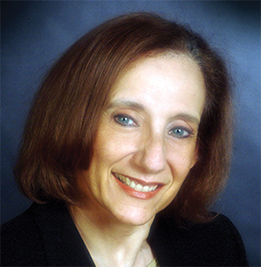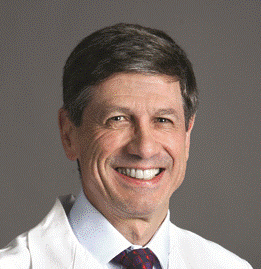Journal of Lipid Research names Rye, Davidson new editors-in-chief
The ��Ʒ����һ��������ɫ announced in late October that of the University of New South Wales Sydney and of Washington University in St. Louis will be the next editors-in-chief of the .
Rye runs the lipid research group at the School of Medical Sciences in the Faculty of Medicine at UNSW Sydney. She has been an associate editor for JLR since 2008. Davidson leads the gastroenterology division and the digestive disease research center at Wash U’s medical school and has been an associate editor for JLR since 2011. Their joint five-year term as co-editors will begin Jan. 1.
 Kerry-Anne Rye
Kerry-Anne Rye
“Kerry-Anne and Nick have prepared a thoughtful and detailed proposal to advance the journal in the future,” said , president of the ASBMB and an eminent scholar at the University of Georgia. “We are confident that the two of them will attract the kinds of papers that will most benefit JLR’s impact.”
 Nicholas O. DavidsonWhile JLR already publishes some , Rye and Davidson have developed a plan for broadening the scope of the journal to include additional clinical research, including studies examining microbial taxa in lipid homeostasis, lipid mediators in human diseases (including atherosclerosis, inflammatory bowel disease, Alzheimer’s disease and liver disease), the role of noncoding RNAs in lipid metabolism, and epigenetic regulation of lipid metabolism.
Nicholas O. DavidsonWhile JLR already publishes some , Rye and Davidson have developed a plan for broadening the scope of the journal to include additional clinical research, including studies examining microbial taxa in lipid homeostasis, lipid mediators in human diseases (including atherosclerosis, inflammatory bowel disease, Alzheimer’s disease and liver disease), the role of noncoding RNAs in lipid metabolism, and epigenetic regulation of lipid metabolism.
Rye earned her Ph.D. at Flinders University in South Australia and completed postdoctoral training at the University of Illinois at Urbana–Champaign. She has been a research professor since 2013 at UNSW, where she serves as the deputy head of the School of Medical Sciences and studies atherosclerosis and diabetes.
Davidson earned his medical degree at King’s College Hospital Medical School in London. He then entered the clinical scholar track at The Rockefeller University in New York before completing his gastroenterology fellowship and research training at Columbia–Presbyterian Medical Center. He has been at WUSTL since 1998 and holds professorships there in the departments of medicine and developmental biology.
The pair will take the reins from the journal’s current co-editors, of the University of California, San Diego, and of the University of Michigan. Dennis has steered the journal since 2003. For most of that time, , also at UCSD, was co-editor. Witztum stepped down in 2016, at which point Smith stepped in to complete Witztum’s term.
“In 2019, JLR will celebrate its 60th year as the premier journal devoted to both basic biochemical and clinical lipid research, and after some 20 years of association with the JLR — including 15 years as editor-in-chief — I felt it was time for new leadership to take the helm,” Dennis said. “We have 22 outstanding associate editors of the journal, and Kerry-Anne and Nick have been among the most devoted of them. I am very pleased with their selection and have great faith that Kerry-Anne and Nick will continue the long tradition of publishing the most outstanding biochemical and biomedical lipid research and lead the JLR to new heights.”
JLR was founded in 1959 by a group of lipid scientists at the National Institutes of Health. They called their organization Lipid Research Inc. When the NIH reduced financial support for the group in the late 1960s, the journal’s editors began exploring partnerships to sustain the publication.
Beginning in 1971, the Federation of American Societies for Experimental Biology took over the day-to-day management of the journal, and in 1999 officials at Lipid Research Inc. approached Dennis, then the head of the ASBMB Publications Committee, about transferring first management and eventually ownership of the journal to the society. The two parties struck a deal, and the journal has been a part of the ASBMB publishing portfolio ever since.
Barbara Gordon, executive director of the ASBMB, praised the journal editors’ leadership over the years.
“The original agreement between the society and JLR’s previous owner says: ‘ASBMB intends to work to maintain JLR as the premier journal in the lipid field, to broaden its appeal to authors, and to increase its impact even more,’” she said. “Ed has been committed to fulfilling this promise each day of his tenure. I can’t thank him, along with Joe Witztum and Bill Smith, enough for their steady, capable administration over the past almost two decades.”
Hart, president of the ASBMB, said the society’s officials have full confidence in the new editors: “We have no doubt that they will be outstanding leaders in keeping JLR as the top journal in the lipid field.”
Davidson has worked extensively with national and international academic communities in digestive and liver disease and is an associate editor for the journal Hepatology and chairman of the board of editors for the journal Gastroenterology.
“I’m excited to work with Kerry to expand the reach of the Journal of Lipid Research into new communities while building on the great legacy created by Drs. Dennis, Smith and Witztum,” Davidson said. “We are also grateful to all the current associate editors for their support and insights on behalf of the journal.”
Rye has extensive links in the international cardiovascular community. She is an associate editor for the journals Arteriosclerosis Thrombosis and Vascular Biology, Circulation Research and the Journal of the American Heart Association.
“We are honored to be given the opportunity to expand the scope of the Journal of Lipid Research while remaining committed to the current focus of all aspects of lipids in science,” she said.
Enjoy reading ASBMB Today?
Become a member to receive the print edition four times a year and the digital edition monthly.
Learn moreGet the latest from ASBMB Today
Enter your email address, and we’ll send you a weekly email with recent articles, interviews and more.
Latest in Science
Science highlights or most popular articles

Bacteriophage protein could make queso fresco safer
Researchers characterized the structure and function of PlyP100, a bacteriophage protein that shows promise as a food-safe antimicrobial for preventing Listeria monocytogenes growth in fresh cheeses.

Building the blueprint to block HIV
Wesley Sundquist will present his work on the HIV capsid and revolutionary drug, Lenacapavir, at the ASBMB Annual Meeting, March 7–10, in Maryland.

Gut microbes hijack cancer pathway in high-fat diets
Researchers at the Feinstein Institutes for Medical Research found that a high-fat diet increases ammonia-producing bacteria in the gut microbiome of mice, which in turn disrupts TGF-β signaling and promotes colorectal cancer.

Mapping fentanyl’s cellular footprint
Using a new imaging method, researchers at State University of New York at Buffalo traced fentanyl’s effects inside brain immune cells, revealing how the drug alters lipid droplets, pointing to new paths for addiction diagnostics.

Designing life’s building blocks with AI
Tanja Kortemme, a professor at the University of California, San Francisco, will discuss her research using computational biology to engineer proteins at the 2026 ASBMB Annual Meeting.

Cholesterol as a novel biomarker for Fragile X syndrome
Researchers in Quebec identified lower levels of a brain cholesterol metabolite, 24-hydroxycholesterol, in patients with fragile X syndrome, a finding that could provide a simple blood-based biomarker for understanding and managing the condition.

